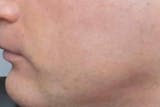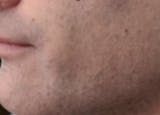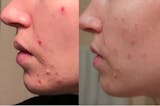Eczema is a chronic skin condition with different stages: acute, subacute, and chronic, each requiring specific treatments.
Long-term eczema management involves understanding unique skin needs, avoiding triggers, maintaining skin barrier, monitoring progress, and staying committed to treatment.
Eczema is a chronic skin condition characterized by periodic acute flares, marked by red, itchy, and inflamed skin. The severity and duration of an acute eczema flare are influenced by three main factors:
In this post, we will explore the various stages of an atopic dermatitis flare, how they are defined, and what treatments may be suitable for each stage.
JUMP TO SECTION:
The Stages of an Atopic Eczema Flare
Atopic eczema, or atopic dermatitis, is a dynamic condition that can evolve through different stages. These stages are defined by the primary mechanisms at play and can be used to tailor treatments to address specific symptoms.
We will discuss the characteristics of acute, subacute, and chronic eczema, including what you can expect and what actions you should consider taking at each stage.
Acute Stage Eczema Flare
The beginning stages of an eczema flare may be subtle, but early identification is crucial to prevent the condition from progressing further. Signs and symptoms in the early stages of eczema can include:
Dry, flaky skin
Small bumps or papules
Mild itching and redness
These early symptoms can be easily mistaken for other skin conditions or simply dry skin. They typically occur shortly after exposure to a trigger and are indicative of a histamine and Th2 immune response.(BEI 2012)
The first few days of a flare we call the “early flare”. You could think of this as your moment of “sixth sense” where you think a flare might be coming, all the way to where you are starting to think of a doctor’s visit a few days later.
Treatment in the early flare stage should focus on reducing or removing the trigger and calming additional inflammation. A symptom journal can help identify the trigger. Treatment options to consider in the early flare stage include:
Antihistamines to reduce itching and swelling
Trigger avoidance and management
Dietary adjustments diet and nutrition
Topical steroids to reduce inflammation, prescription strengths may be used in more severe cases
In the mid-flare stage, if triggers have been removed (which may be hard to do), the flare is now being driven largely by skin barrier “weakness” and the immune system itself.
All of the above treatment options still apply. Consider adding the following in the mid flare stage:
Phototherapy - specifically UV-A1 (BEI 2012)
Topical calcineurin (TC) inhibitors for control
Subacute Eczema Flare
The subacute stage, also known as the "healing stage," occurs as the skin begins to heal. Symptoms in this stage include itching, dryness, scaliness, thickening of the skin, and cracking or weeping. The skin is less red and inflamed compared to the acute stage but may still experience occasional flares meaning the healing is not necessarily linear.
Treatment during the subacute stage focuses on moisturizing dry skin and facilitating the healing of the skin barrier. This can be achieved through:
Continued use of moisturizers
Topical steroids, potentially weaning off their use
Maintenance phase of TC inhibitors
Soothing baths, wet wraps, washing and other symptom management
Trigger avoidance and lifestyle adjustments
Continued use of antihistamines
Escalations in treatment to more systemic immunomodulatory medication may be considered for severe and enduring cases. See the ‘medical treatments’ in the immune control part of treatments and discuss this with your doctors if you think this is applicable for you.
Chronic Stage of An Eczema Flare
If a flare persists for an extended period of time, it can enter the chronic stage where a feedback loop occurs and the flare persists. Symptoms include thickened, scaly skin, discoloration, and persistent itching and dryness. This stage takes months to establish and can be caused by ongoing triggers, genetic susceptibility, or constant scratching.
Chronic eczema requires a different treatment approach to acute and subacute eczema, focusing on identifying the changes necessary to break the cycle of symptoms while maintaining daily skin care. Chronic eczema can lead to a heightened Th1 immune response, with a delayed hypersensitivity.(BEI 2012) Treatment should involve:
Review of trigger avoidance with careful investigation into stress, outstanding lifestyle changes, environment, allergies and intolerances and food
Support healthy gut through proportionate review of diet and nutrition
Consistent moisturizing
Increased potency topical steroids
Continued use of TC inhibitors
Microbiome support
Phototherapy, ideally NB UV-B
For moderate and severe cases which do not respond to first-line treatments, escalating to systemic immunomodulatory medication will be necessary. The objective is to interrupt the inflammatory processes which are preventing the skin from healing. Some options include:
In certain circumstances, oral steroids
The Stages of Eczema Healing
Healing from an eczema flare is a journey that progresses through various stages. As you move through your treatment plan, you'll notice a reduction in eczema symptoms and eventually, a decline in their frequency. It is important to remember that triggers and skin barrier weakness may continue to cause symptoms or flare-ups over time. Healing is rarely linear so there you may experience two steps forward, one step back and so on.
As you progress through the healing stages, you'll notice the following changes:
Inflammation subsides and heat reduces
Dryness can increase briefly following a period of inflammation
Dryness diminishes as the skin repairs itself
Itchiness calms down
Thickened skin lightens and loosens
Discoloration can lessen
Throughout the healing process, it's crucial to address the symptoms present at each stage. Once your skin has healed, you may find that it becomes more resilient to triggers, allowing you to reintroduce certain foods or activities into your lifestyle without causing a flare-up. For example, if a leaky gut had led to certain foods triggering your eczema. Once the gut has healed, the triggering foods may not be so problematic any more.
What to Do Next
The above walked you through an eczema flare in stages. However, for most people eczema is a lifelong balancing act between their environment, their skin barrier strength, and their immune system function.
The best flare management is avoiding a flare all together. After your flare subsides, think about how to avoid triggers, build a stronger skin barrier, and keep a balanced immune system by:
Understanding your skin's unique needs and characteristics
Identifying and avoiding triggers that exacerbate your eczema
Find suitable moisturizers to build your skin barrier
Monitor your progress and adjust your treatment plan as needed tracking
Be patient and stay committed to managing your eczema in the long term
We encourage you to explore our website to learn more about eczema and find the resources and support needed to manage this complex skin condition effectively.
Remember, you are not alone in this battle, and there is help available to guide you every step of the way.
Share your experiences with us! Tell us what has and hasn’t worked for you. What did we miss in this article that you've found personally impactful? Your insights can help others better understand and manage their eczema.



